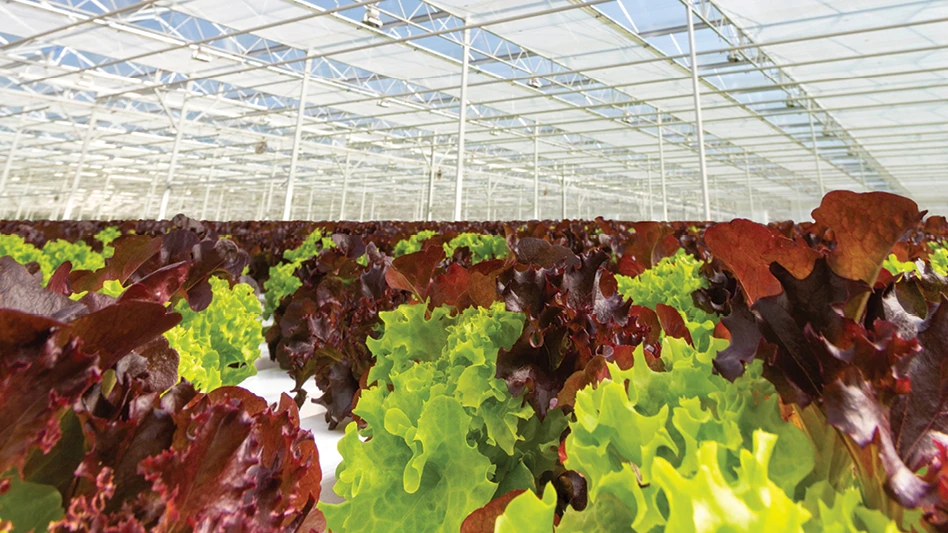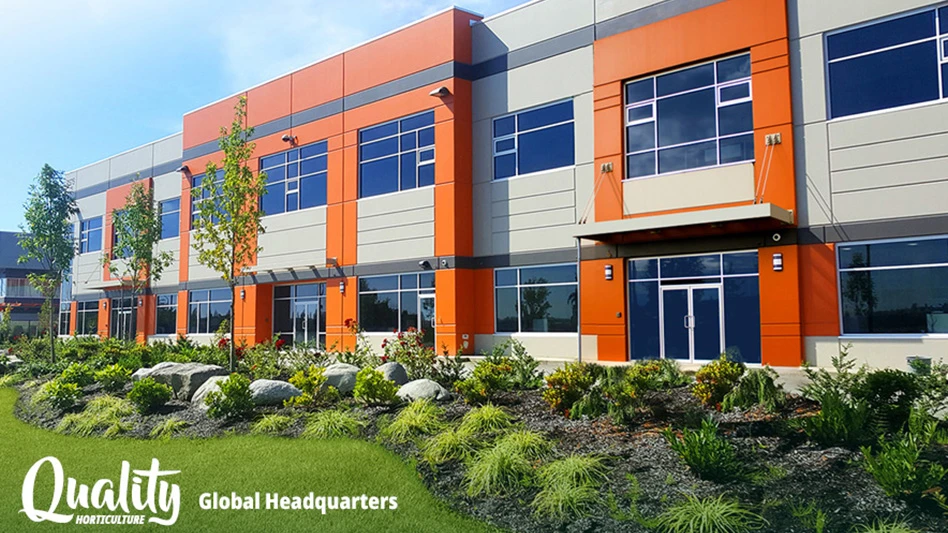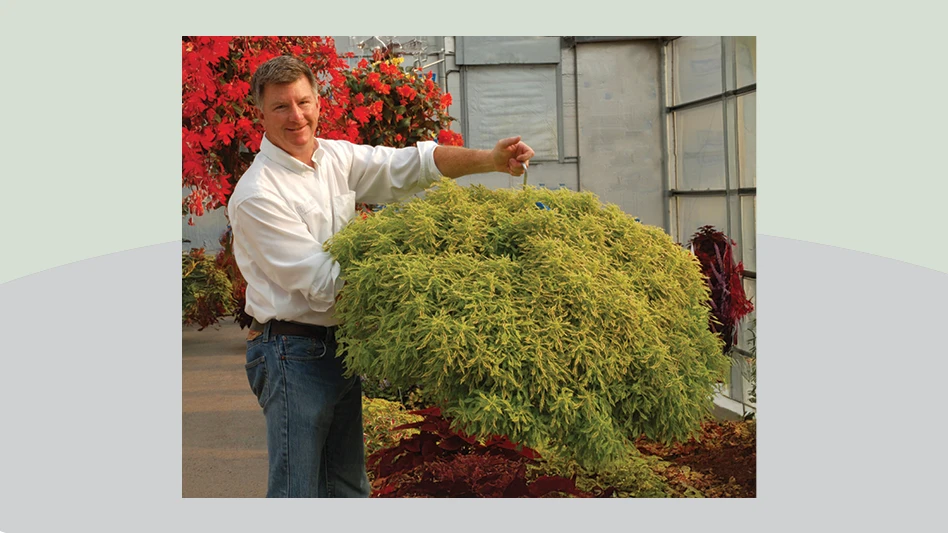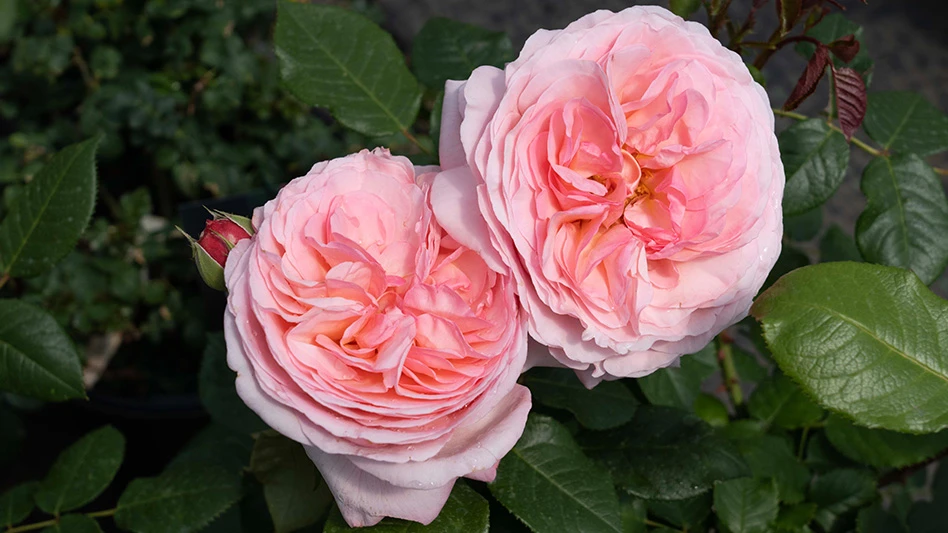Henry Mello of Mello’s Farm & Flower Center in Portsmouth, R.I., is fascinated by the wind turbine his city installed across from his farm. It’s something he sees operating every day. He has contemplated installing one for his operation.
“I figure if the city can put one up, they can’t tell me no,” Mello said.
In an effort to lower his heating costs and increase the overall energy efficiency of his operation, Mello has put in a lot of time researching alternative energy values such as wind turbines and geothermal systems. He visited a neighboring greenhouse operation that recently installed a biofuel heating system.
“At the moment, everything seems cost-prohibitive,” he said.
Mello is still interested in exploring other energy options, but has ruled out burning wood chips because of concerns that they’ll become problematic with the EPA. He is currently using a Wadsworth 50Step environmental control system in his naturally ventilated greenhouses equipped with 6-foot roll up sides.
Mello strives to save money and energy where he can and advocates automation as a way to do it, especially during a new build.
“Labor costs decrease and production increases. Having a good mix of labor and automation is critical,” he said.
He currently has a Weil-McLain hot water boiler system for propagation and four Siebring oil-fueled heaters.
Mello’s Farm & Flower Center currently has 30,000 square feet of greenhouse space and another 27,000 square feet addition is under construction. The company produces annuals and vegetables.
For more: Mello’s Farm & Flower Center, (401) 954-6825
Tweaking for Energy Savings
Robert H. Deibel Greenhouses in Crestwood, Ky., has greenhouses that are over 50 years old. Owner Dennis Deibel said finding ways to save on energy costs can be a challenge. Last summer Deibel revamped the boiler system. It was re-tubed and water softeners were installed. The boiler settings were tweaked to utilize more Btu while costing less to operate. Deibel also uses some steam in parts of the greenhouse, relying on all Modine products for his heating needs.
“Biofuels are fine if you can get a system in during a new build or while retrofitting a fairly new operation,” Deibel said.
He said a biofuel system is not an option because of the way the older range is laid out. Due to the age of the structures, Deibel has found other ways to conserve energy including consolidating plants into smaller production areas and not opening the houses until later in the season.
One big gain for him has been growing crops cooler.
“A 2 degree drop in temperature makes a huge difference in heating fuel consumption,” he said.
Now, he’s on the lookout for crops that can tolerate lower production temperatures. Poinsettias, he has found, adapt well to this method of growing. He has had success finishing them by lowering the temperature during the final month of production.
Deibel operates 130,000 square feet of greenhouse production space growing poinsettias, garden mums, pansies and Easter lilies.
For more: Robert H. Deibel Greenhouses, (502) 241-4459
Battening Down the Hatches
Jim Bundi at Bundi Gardens in Great Falls, Mont., is always looking for ways to tighten up his greenhouse facilities to keep energy costs low. His heating system consists of a 10-year old Sunderman hot water system for propagation and a new, compact boiler which produces forced air for the remainder of the greenhouse. The single most important thing he does is tighten the greenhouse structure to ensure there are no leaks.
While the idea of transitioning to a biofuel system is enticing, Bundi said it would be cost prohibitive as a retrofit. “It would be great for a new build,” he said.
Two sources of alternative energy that have gotten his attention are wind generators and solar systems. “A passive solar system would be an interesting investment,” he said.
Bundi monitors heating fuel consumption in his main greenhouse using a computer control system. “It’s very nice to have,” he said. “I don’t have to worry about when heaters come on or turn off. It’s all programmed and automatic.”
Bundi doesn’t have external access to the environmental control system through a smart phone or other device, but he likes knowing the technology is there when, and if, he’s ready to go that route.
Bundi Gardens is a retail growing bedding plant operation with around 30,000 square feet of greenhouse space.
For more: Bundi Gardens, (406) 771-0220

Explore the August 2010 Issue
Check out more from this issue and find your next story to read.
Latest from Greenhouse Management
- North Carolina Nursery & Landscape Association announces new executive vice president
- Plant Development Services, Inc. unveils plant varieties debuting in 2025
- Promo kit available to celebrate first National Wave Day on May 3
- Applications now open for American Floral Endowment graduate scholarships
- Endless Summer Hydrangeas celebrates 20 years with community plantings
- Invest in silver
- Garden Center magazine announces dates for 2025 Garden Center Conference & Expo
- USDA launches $2 billion in aid for floriculture growers





